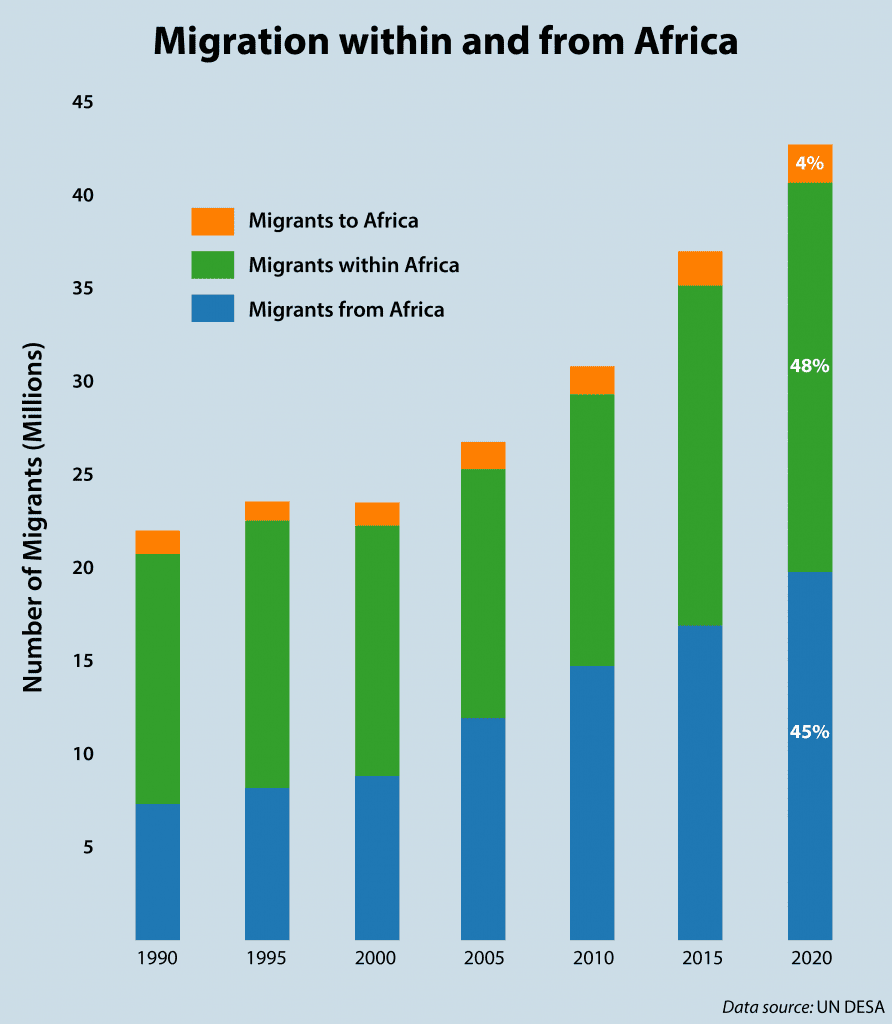Relocation abroad is trending in many parts of the world and it should not come as a surprise. Our human nature pushes us to seek out new frontiers and places in search of greener pastures. Over the years, the uncertainty and dangers of illegal migration especially from Africa has increased. Hence, migrants increasingly seek safer and legal options for their travels. This article outlines 5 legal ways to move abroad bearing in mind your long-term or short-term goals.

1. Student route

Perhaps the most common means of relocation abroad is via the student route. Students can apply to any school of their choice abroad and a successful application guarantees an entry visa. However, immigration laws are tightening in countries like Canada where a successful school admission does not guarantee entry. The United Kingdom (UK) offers attractive and easy immigration laws for intending students seeking admission. Recent graduates can remain in the UK for between 2 to 5 (e.g. doctoral graduate) years to secure jobs. However, one must also consider the UK’s volatile policies and the possibility of unfavourable laws in their decision-making process.
North America is equally another destination for students from Africa because of the attractive after studies prospects. Canada offers an easier route, where graduates can easily extend their visas for work or permanent residence (PR) consideration. Hence, it might be worthwhile to invest in a Canadian visa as it offers more stable prospects after graduation.
2. Work/Professional/Talent Route

As the world increasingly shrinks, linkages in the world of work are equally increasing on a global scale. In many countries, expatriates are granted visas as skilled workers. For instance, the Canadian Express Entry (EE) application process allows skilled immigrants to settle in Canada permanently and take part in their economy. A rigorous process of selection is carried out from a pool of applicants to determine eligibility.
Alternatively, you can simply apply for a job in another country while the company sponsors your visa. This has become an attractive pathway for many skilled professionals and workers whose skills are sought after. After the COVID-19 pandemic, health professionals and ‘techies’ seems to be at the top of the food chain from where major multinationals pull talents from all over the world.
3. Family/dependent route

Laws of family formation and unification allow families to join their spouses or immediate family members abroad. Whether the family member is schooling, working or a permanent resident, these laws protect families from staying apart for too long. Usually, this is restricted to immediate family members as extended families or relatives may find it difficult to use this route, especially in the US.
In light of fraud, issuance of this type of visa is met with strict scrutiny and sometimes a painfully long process. Background checks are often performed to ascertain the genuineness of family linkages presented – in some cases, a DNA test is even requested for children. In the UK for instance, family members can apply to join their families abroad but the longevity of their visa is tied to that of the primary applicant.
4. Investment route

Probably the most expensive but stress-free migration route, investors can simply plough a stipulated amount of money into the economy of their desired country. You can either start a business or buy your citizenship to be offered a legal visa. Some countries are strict about background checks while others are not. An underlying factor is that you need a fat wallet for citizenship by investment.
5. Asylum route

In most countries, immigration laws allow an individual to migrate under life-threatening circumstances for safety like genocides, war, or cultural issues (sexual orientation and preferences). This route requires maximum scrutiny and investigation to determine the danger the asylum seeker is exposed to. Recently, migrants from war-torn and fragile settings like Ukraine, Afghanistan and Syria have been granted asylum in Europe and North America to protect them against violence. To qualify for this visa, one must demonstrate with evidence the danger they stand facing remaining in their home country.
In conclusion…
Whether you are considering moving to a different country for school, work or permanent relocation, you must consider your long-term goals and financial capacity in light of available migration options. Never be in a hurry to migrate because ‘the Joneses’ are doing so, your plans must align with your personal values, money habits and vision for your life. In addition, investigating your country of choice also matters in managing your expectations and growth trajectory. Some countries may offer fast growth in a short time while others offer rewarding outcomes from long-term growth. Empower yourself with the right information about relocation as the ultimate choice lies in your hands.











